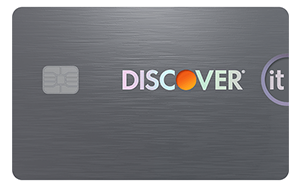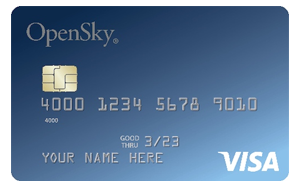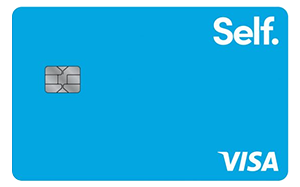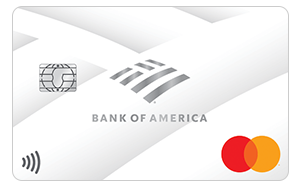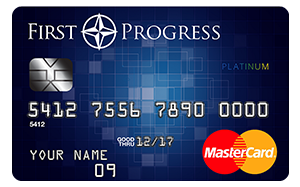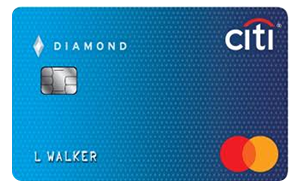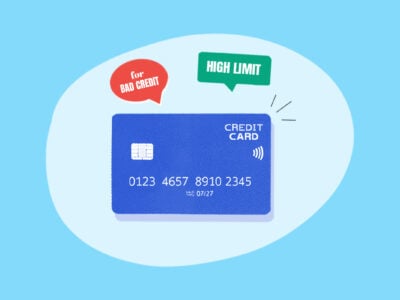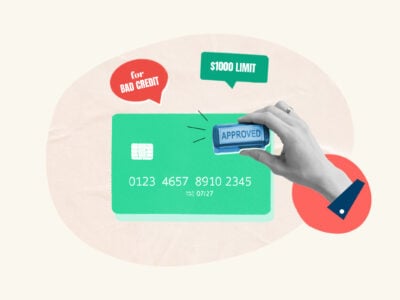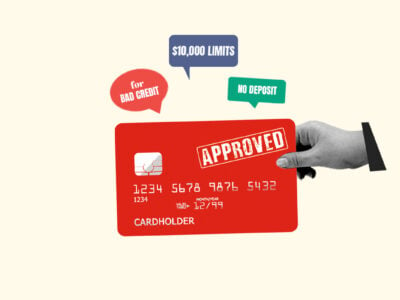Secured Credit Cards
| Credit Card | Best For | Credit Score | Annual Fee | Welcome Bonus | |
|---|---|---|---|---|---|
| Secured Overall | 300–669 | $0 | Cashback Match | ||
| No Credit Check | 300–669 | $35 | |||
| Beginners | 300–669 | $25 | |||
| No Annual Fee | 300–669 | $0 | |||
| Bad Credit | 300–669 | $49 | |||
| Rebuilding Credit | 300–669 | $0 | |||
Table of Contents
- Best secured credit cards
- What is a secured credit card?
- How does a secured credit card work?
- Will a secured credit card raise my credit score?
- How do I apply for a secured credit card?
- How do I use a secured credit card?
- Other FAQs about secured credit cards
- FinanceJar credit card rating methodology
Best secured credit cards
Our experts have gathered the best secured credit card options around. These cards frequently report to all three credit bureaus, allowing you to build your credit, and because their issuers require a refundable security deposit, they’re available to almost everyone.
Best overall secured credit card
Best secured credit card with no credit check
OpenSky® Secured Visa®
Rating Breakdown
Fees
4.6The OpenSky® Secured Visa® does well in the fees category thanks to the low annual fees.
APR
3.3The OpenSky® Secured Visa® has reasonable interest rates on purchases and cash advances, especially compared to other cards for this credit range.
Rewards
1.0Because this card doesn’t give you any returns for your spending, it gets the lowest possible score in the rewards category.
Credit Reporting
5.0The OpenSky® Secured Visa® reports to all three credit bureaus, so it gets top marks for credit reporting.
Security Deposit
4.0The OpenSky® Secured Visa® allows you to put down as little as $200 or as much as $3,000, so there’s a reasonable amount of flexibility about how much security deposit you pay (and credit limit you get in return).
Other
We bumped up the score a bit for this card because of its good accessibility, since it has high approval odds and is available to borrowers with no credit history.
|
Annual
Fee
$35 |
Credit
Score
300–669 |
|
Deposit
$200–$3,000 |
Purchase
APR
21.14% (variable) |
Why It's Great
The OpenSky® Secured Visa® makes a name for itself as one of the easiest credit cards to get. It doesn’t require a credit check, so you won’t need to worry about your credit history disqualifying you, and you won't get a hard inquiry on your credit report. Hard inquiries knock a few points off your credit score, so it never hurts to avoid them when possible.
Additionally, OpenSky reports to credit bureaus, which helps you build credit. Keep up on your payments and borrow responsibly (i.e., don't max out your card) and the OpenSky® Secured Visa® can help you build enough credit to start applying for more lucrative unsecured credit cards.
Pros & Cons
Pros
- Helps build credit
- Low APR
- No checking account required
- High approval odds
Cons
- Charges an annual fee
- Can’t upgrade to an unsecured card
- No rewards
Best secured credit card for beginners
Self Visa® + Credit Builder Account
|
Annual
Fee
$25 |
Credit
Score
300–669 |
|
Deposit
$100 |
Purchase
APR
26.99% (variable) |
Why It's Great
Unusual among secured cards, the Self Visa® requires you to have a Self Credit Builder Account (a credit builder loan), which provides your deposit for the secured card.
Opening both accounts can give your credit score a boost by increasing your total number of open accounts and building up your credit history—great for people who are new to the credit world. Even better, Self reports to credit bureaus, so you'll get positive payment history reported on both the loan and the credit card if you keep up with your monthly bills.
The Self Visa® is among the handful of credit cards that don't require credit checks, meaning you can get approved even with black marks on your credit history (like defaulted loans or bankruptcy).
Pros & Cons
Pros
- Good for building credit
- Available to people with bad or no credit
- No credit check required
Cons
- Requires a credit builder account
- Low initial credit limit
- $25 annual fee
- No balance transfers or cash advances
Best secured credit card with no annual fee
BankAmericard® Secured Credit Card
|
Annual
Fee
$0 |
Credit
Score
300–669 |
|
Deposit
$200–$5,000 |
Purchase
APR
24.99% (variable) |
Why It's Great
You don’t need a Bank of America account to apply for the BankAmericard® Secured credit card, but you still get Bank of America benefits with this secured card. Benefits include fraud protection and easy account management through Bank of America’s mobile app. Even better, the card doesn't come at the cost of annual fee, like many similar secured credit cards charge.
As an added perk, the card comes with free monthly FICO scores, helping you track your credit-building progress.
Pros & Cons
Pros
- $0 annual fee
- Flexible credit limit
- Free FICO score
- $0 liability guarantee for fraudulent charges
Cons
- High interest rates
- $300 minimum security deposit
- No rewards
Best secured credit card for bad credit
|
Annual
Fee
$49 |
Credit
Score
300–669 |
|
Deposit
$200–$2,000 |
Purchase
APR
13.74% (variable) |
Why It's Great
The First Progress Platinum Prestige MasterCard® Secured credit card is one of the best credit cards that offers instant approval, making it a good choice of credit card for bad credit if you're looking for speedy borrowing solutions.
This card also features one of the lowest interest rates among secured cards, making it a top choice for anyone who's likely to carry a balance from one month to the next.
Adding to its list of pros is the fact that you can qualify without a credit check, it reports your borrowing activity to the bureaus, and you can get a credit limit as high as $2,000.
Pros & Cons
Pros
- Low APR
- No credit inquiry required
- The security deposit is refundable
- A discharged bankruptcy in your credit report will not cause you to be declined
Cons
- $49 annual fee
- Requires a security deposit
- Requires a Synovus bank account
- The card can’t be upgraded to an unsecured card
Best secured credit card for rebuilding credit
Citi® Secured Mastercard®
|
Annual
Fee
$0 |
Credit
Score
300–669 |
|
Deposit
$200–$2,500 |
Purchase
APR
26.24% (variable) |
Why It's Great
With no annual fee and credit limits as high as $2,500, the Citi® Secured Mastercard® one of the best secured credit cards with no annual fee. It proves a low-cost and flexible option for people looking to rebuild their credit.
Citibanks reports to all three credit bureaus and offers fraud alerts and identity theft protection, so you can rest assured that your credit is in good hands. They even give you free FICO scores every month, so you can track your credit's progress.
Pros & Cons
Pros
- Available to limited credit borrowers
- $0 annual fee
- Reports to all three credit bureaus
Cons
- High APR
- Requires a security deposit
- No rewards
What is a secured credit card?
A secured credit card is a type of credit card that requires you to put down a security deposit when you open your account. This deposit acts as collateral that the credit card company will keep if you fail to make your payments, and usually also sets your credit limit.
Secured credit cards have several pros and cons.
Pros and cons of secured credit cards
Pros
- Higher chances of approval for people with low credit or no credit history
- Typically reports account history to all three major credit bureaus
- Deposit is refundable
Cons
- Mandatory minimum deposits
- Higher interest rates and fees
- Few rewards or other perks
Secured vs. unsecured credit cards
In general, secured credit cards operate in the same ways as unsecured credit cards.
| Secured | Unsecured | |
|---|---|---|
| Minimum credit required | Available for nearly all credit scores | Fair to excellent credit required (601–850) |
| Security deposit | Average minimum deposit of $200 | No deposit required |
| Rewards programs | Rewards are frequently not offered | A wide range of rewards are often available |
| Interest rates | Higher than average APR | Average to below-average APR (based on creditworthiness) |
Secured credit cards require a minimum deposit upon opening your account, and generally have higher interest rates than unsecured cards while lacking any special rewards and benefits.
In contrast, unsecured cards don’t require a security deposit. They also adjust their interest rates based on applicants’ credit scores and histories and offer an assortment of rewards suited to different spending habits and lifestyles.
Although secured cards don’t have as many rewards, they’re usually among the best credit cards for bad credit and even the best credit cards for fair credit since they tend to have lower qualification thresholds than unsecured cards.
How does a secured credit card work?
A secured credit card works exactly the same way as a normal (unsecured) credit card, the only difference being that you need to pay a deposit to get one, and you can lose that deposit if you fail to make repayments.
With a secured credit card:
- You can purchase any goods and services
- You’ll be asked to make a minimum payment on your charges every month
- If you don’t pay your credit card bill in full, you’ll pay an interest rate on the amount you didn’t pay off
- Your payment history will be reported to the credit bureaus, either helping or hurting your credit score depending on if you make on-time or late payments
Will a secured credit card raise my credit score?
Yes, a secured card can improve your credit score, as long as you use it responsibly.
Your new card has the potential to:
- Build your payment history: In the future, whether you’re applying for a credit card, mortgage, or even an apartment, anyone who checks your credit will see your payment history on your secured credit card. Using it responsibly (which means making the required on-time payments each month) will reflect positively on your credit report, raising your score over time.
- Lower your credit utilization: Your credit utilization rate also impacts your score. Your utilization rate indicates how much available credit you have across your revolving credit accounts. For example, if you have one secured card with a credit limit of $200 which you spend $60 on, that translates to a 30% utilization rate. If you avoid overusing your card (keeping your utilization rate in the single digits, if possible), it will benefit your score.
Note that to get the maximum benefits, you should apply for a card that reports to all three major credit bureaus (Equifax, TransUnion, and Experian), since you don’t know which bureau a particular lender will use.
How do I apply for a secured credit card?
Once you’ve compared the interest rates and benefits of a few secured cards and selected the one you want, applying for a secured credit card involves the following steps:
- Submit your application
- Pay your security deposit
- Look for alternatives if you’re denied
1. Submit your application
You can apply through your card issuer’s website or by mail. Be sure to fill in all of the information required to give yourself the best chance of acceptance. The card issuer’s underwriters may evaluate your credit history to determine if you’re too risky to give credit to. Fortunately, because you’re applying for a secured credit card, it’s more likely that you’ll be approved even if you have a nonexistent, limited, or bad credit history. In some cases, they may not even check your credit at all.
If an issuer does check your credit, the hard inquiry they conduct will have a slight and temporary negative effect on your credit score. To avoid dropping your score too far, it’s best to apply for cards one at a time. If you get rejected, find out why and target your next application more carefully.
2. Pay your security deposit
Before you can open your account, you’ll need to pay your security deposit. Depending on your card issuer, this may be immediately withdrawn from your checking account or you may be given time to gather the necessary funds.
Your deposit defines your credit limit—you won’t be able to spend more on your card than you paid to begin with.
Failing to pay your security deposit will lead to your application being rejected.
3. Look for alternatives if you’re denied
If your application for a secured credit card is denied, find out why (this should be easy—card issuers are legally obligated to explain their reasons for denying credit card applications). Many issuers will also tell you what credit score they saw and which credit bureau they got it from.
You can request a free copy of your credit report whenever your credit card application is denied. It’s best to take advantage of this and to promptly dispute items on your credit report if there’s an error.
If your secured card application is denied, you can also try:
- Speaking with your local bank or credit union: These are institutions you’ve already built relationships with. An in-person visit to a bank or credit union will allow you to explain your financial situation in detail and improve your chances of being approved for a secured card provided by them.
- Applying for secured cards that don’t require a credit check for approval: Because these don’t take your credit score or history into consideration, it’s more likely you’ll be approved.
How do I use a secured credit card?
Using a secured credit card is no different from any other card. However, it should be considered a stepping stone to getting cards with higher limits, better benefits, lower interest rates, and no security deposits.
To graduate from using a secured credit card to an unsecured one, you should:
1. Maintain good credit habits
Once your account is open and you start using your card, you’ll be billed for your charges on a monthly basis. Because secured credit cards typically have higher interest rates than unsecured cards, it’s even more important to keep track of your spending and pay off your balance in a timely manner.
Regularly hitting your credit limit—“maxing out” your card—can make it harder to pay your balance on time, leading to interest charges that quickly add up. Maxing out your card will also push your credit utilization well past 30%, damaging your credit score.
Overusing your credit card also makes it easier to overcommit financially and miss payments, which is a serious problem. Having a negative payment history on your credit report can damage your credit score significantly.
2. Upgrade your credit card
Once you’ve built up a positive credit history with your secured credit card, you have up to three options for upgrading to an unsecured credit card:
- Automatic upgrade: Many secured cards have a built-in upgrade that your card issuer will offer when they’re comfortable with your payment history.
- Request an upgrade: If your card issuer doesn’t automatically upgrade your account, you may need to request an upgrade yourself.
- Apply for a credit card from a different issuer: If your issuer doesn’t offer unsecured credit cards, you can always try to apply for a different company’s credit card.
Other FAQs about secured credit cards
We’ve answered some of the most frequently asked questions about secured credit cards below.
Is a secured credit card good for beginners?
Yes, a secured credit card is a good choice for beginners. Secured cards don’t impose many limits on applicants, and are marketed towards people who are trying to establish a credit history or fix a damaged credit score, or anyone else who wants quick, no-fuss access to a line of credit.
As credit cards go, secured cards tend to have the most straightforward cardholder agreements, making them easier to understand for people unfamiliar with how credit cards work. Since secured cards generally don’t offer rewards programs or other kinds of benefits, you don’t have to worry about wasting rewards points or missing out on cash back.
What is the minimum deposit for a secured credit card?
Exactly how much money you’ll need to put down for your deposit depends on your card issuer. Typically, secured credit cards require a minimum deposit of $200.
Where can I get a secured credit card?
While we’ve tried to compile the best secured cards for different kinds of spenders above, the market for secured credit cards is huge.
For example, many banks and credit unions offer their own secured cards. If you have a savings or checking account, take a look at what cards your financial institution offers to existing members.
Can you request a credit limit increase on a secured credit card?
Typically, the only way to request a credit limit increase on a secured card is by increasing the amount of your deposit.
FinanceJar credit card rating methodology
How we rate our secured credit cards
The top factors that FinanceJar's card experts analyzed when rating the secured credit cards on this list are:
- Deposit Amount
- Credit Score Required
- Interest Rates and Fees
- Customer Satisfaction
These factors, among many others, are part of our 5-star credit card rating methodology for all card categories. Our star ratings are unbiased and independent of our affiliates and advertisers.

